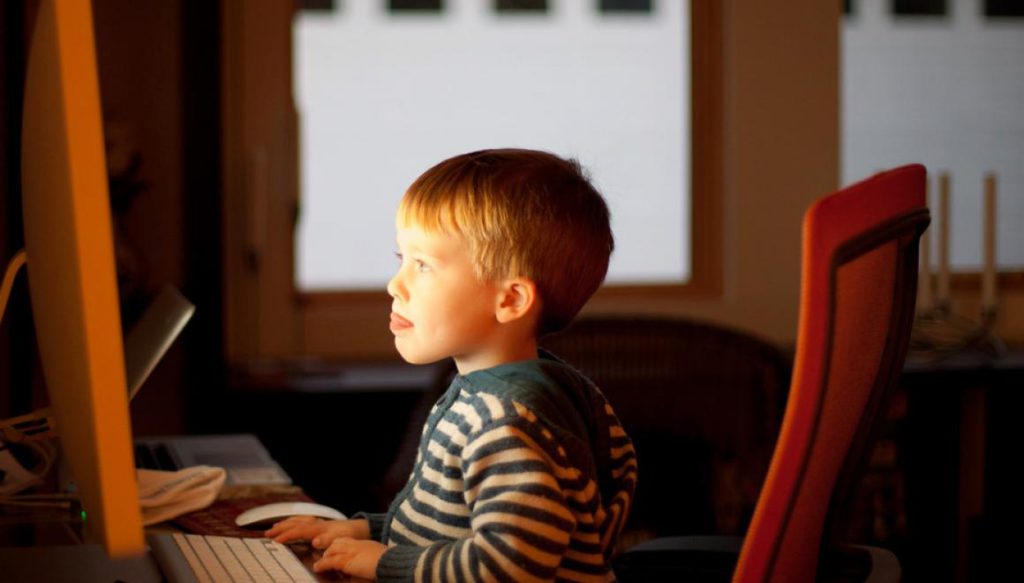We are thrilled to share the results of our latest research endeavor. The objective of this survey was to gauge users’ awareness …
Privacy Among Children

The Privacy of Children and the Laws That Apply Thereto

Introduction
The safety of one’s information and identity is becoming an increasingly pressing issue in today’s digital environment, particularly with reference to young people. This raises the question- What is Children’s Privacy Law? As a growing number of young people utilize digital technology and the internet, the significance of instituting stringent privacy measures is becoming increasingly important. In this research, we will investigate the significance of preserving the privacy of children, how the laws now operate, and the steps that may be taken to make them even more stringent.
The Need That Children Have for Their Own Personal Space
Children, in particular, stand to gain a great deal from having their right to privacy protected because of the positive effects it has on the development of their feeling of independence and sense of who they are. Developing a sense of identity, establishing boundaries, and making new acquaintances all need young people to spend time alone. They need settings that protect their privacy for reasons of safety both online and offline. Children gain from having more privacy because it inspires them to develop their independence, responsibility, and sense of safety as people.
When children are allowed the freedom to be themselves, it fosters healthy relationships with their parents and other caregivers. Children want an environment in which they may freely express who they are without the fear of being mocked or punished. For this reason, it is of the utmost importance that parents and other caregivers protect and defend the right to privacy of their children.
The Existing Private Information Act Children’s Garden as a Landscape
In recent years, a number of countries have introduced legislation to protect the online privacy of children and young people. These laws intend to ensure that corporations and other organizations who collect data on kids do so in an honest and open manner by requiring them to comply with certain ethical standards. The Children’s Online Privacy Protection Act (COPPA) is the primary piece of federal legislation in the United States that governs the collection of personally identifiable information from children who have not yet reached the age of 13. Under the Children’s Online Privacy Protection Act (COPPA), businesses are required to obtain parental consent before collecting personally identifiable information from children, and they must also provide parents the option to review the information and delete it if necessary.
The General Data Protection Regulation (GDPR) of the European Union lays out stringent criteria for safeguarding the private data of persons, particularly the data of children, and it does so in a comprehensive manner. According to the General Data Protection Regulation (GDPR), organizations are required to get the consent of the parents of anybody less than 16 years old before collecting data on that person. In addition, businesses are required to provide parents access to the information collected about their children and the opportunity to have such information deleted.
Concerns Regarding the Children’s Right to Privacy Protection
There are Children’s Privacy Policy in place to protect the privacy of children, but there are also a number of roadblocks to guaranteeing that children have anonymity online. The rapid proliferation of brand-new technological capabilities is one of the most daunting challenges. It may be difficult for legislators and regulators to keep up with the fast development of new technologies and platforms, as well as to pass child privacy laws that are not only required but also effective. As a direct consequence of this, children may be at danger for several forms of harm, including an invasion of their privacy. Another barrier is that parents and children are not adequately informed and educated about the need of maintaining the confidentiality of personal information. Many parents and children are ignorant of the possible risks involved in using the internet, despite the fact that there are measures to protect personal information when using the internet. Because of this, children are more likely to be harassed or targeted by predators when they go online.
Conclusion
Honoring the developing sense of agency and sense of Privacy Among Children may be accomplished through the protection of their right to privacy. Child privacy laws are a useful beginning step in protecting the personal information of children when they are using the internet; nevertheless, these rules need to be periodically updated and improved in order to keep up with the rapid changes that are occurring in technology. Both children and their parents need to be made aware of the potential risks associated with disclosing personal information online, as well as the preventative steps that may be taken to maintain their privacy. This must be accomplished through increased educational and awareness-raising efforts. If everyone contributes a little bit, we can make the internet a safer and more kid-friendly place to be.
Checkout Other Reports
India is currently witnessing a significant shift in its approach towards data protection with the introduction of the Digital Personal Data Protection …
Tsaaro Consulting and Fractal Analytics undertook an interesting study to understand where Privacy meets Responsible A.I. Our survey went on to be …
As the privacy landscape continues to evolve dynamically and the instances of non-compliance constantly increases, enterprises worldwide are witnessing record-breaking fines under …



